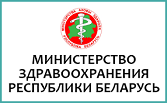Stomach cancer
Stomach cancer
Gastric cancer is a disease in which malignant (cancerous) cells form in the mucous membrane of the stomach.
Causes
The risk of developing gastric cancer increases with the presence of infection - the bacterium Helicobacter pylori in the stomach. This study can be done by passing a gastroscopy with a biopsy (a slice of the mucosa). Strict diet, alcohol abuse and peptic ulcer disease can affect the risk of developing stomach cancer.
Risk factors for developing gastric cancer include the following:
- The presence of any of the following diseases:
- Helicobacter pylori (H.)
- Infections of the stomach.
- Chronic gastritis (inflammation of the stomach).
- Anemia.
- Intestinal metaplasia.
- Peptic ulcer or polyps of the stomach.
- Family history - cases of stomach cancer in close relatives.
- Nutrition is the abuse of foods high in salt, smoked foods, low in fruits and vegetables.
- Abuse of alcohol.
- Smoking cigarettes.
Symptoms
Often, stomach cancer develops asymptomatically and its presence can be suspected only in the analysis of cancer markers and the presence of prolonged difficult-to-treat anemia. When the tumor begins to squeeze nearby tissues and nerves, pain and the following symptoms begin to appear:
- Pain at the top of the abdomen.
- Loss of appetite.
- Weight loss for an unknown reason.
- Nausea, discomfort after eating.
- Frequent vomiting, heartburn.
- Prolonged constipation or diarrhea, bloating.
- Weakness.
- Possible signs of stomach cancer include indigestion and discomfort or pain.
In later stages of stomach cancer, the following problems may occur:
- Blood in the stool.
- Jaundice (yellowing of the skin, mucous membrane and eyes).
- Ascites (accumulation of fluid in the abdominal cavity).
- Problems with swallowing.
Metastases
Cancer of the stomach gives metastases primarily to the liver, lungs, kidneys, brain, lymph nodes.
Diagnostics
The basic diagnostic program includes:
- Studying an anamnesis, a family history of the patient
- Various blood tests (biochemistry, general, hemoglobin, cancer markers CA72.4, CEA and CA19.9)
- Ultrasound of internal organs and lymph nodes.
- Endoscopic examination of the gastric mucosa with biopsy
- Pathological examination of the biopsy specimen for the analysis of the structure of cells. Biopsy is the only reliable way to detect cancer cells.
If doctors are suspected of having a cancer, in particular gastric cancer, additional tests can be prescribed.
- Fecal occult blood test
- Computed Tomography (CT)
- MRI
- Chest X-ray
- Endoscopic ultrasound (EUS) or endosonography
- Laparoscopy
- PET (positron emission tomography)
Treatment
Treatment of stomach cancer, mainly surgical. At subsequent stages, chemotherapy and radiation can be used. Treatment for stomach cancer may include the following:
- An operation to remove a cancerous tumor and some healthy tissue around it.
- Operation to remove residual tumor after radiation therapy and / or chemotherapy.
In the case of metastatic stomach cancer, in addition to surgery, the question of the order of chemotherapy and / or irradiation therapy
In later stages, stomach cancer can be treated, but rarely can be cured.
Relapse of stomach cancer
After treatment of the main tumor, a recurrence of cancer can happen elsewhere - lymph nodes, liver or intestines. For control, the patient receives precise instructions for further examination and its regularity.
Forecast
The prognosis for stomach cancer (chances of recovery) depends on how much the cancer has spread at the time of diagnosis.



















